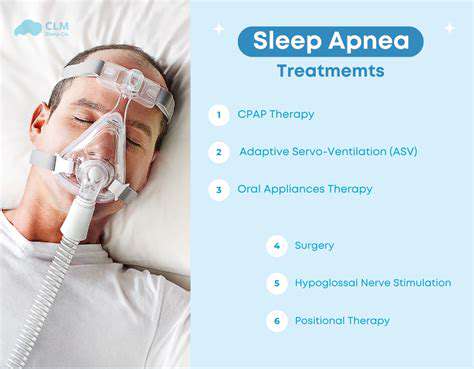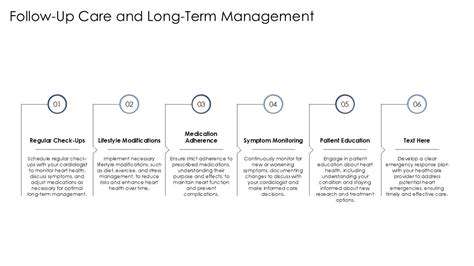Guide to Managing Sleep Apnea
By focusing on these distinguishing characteristics, we can create accurate and comprehensive categories for various types. This approach is essential in fields like biology, chemistry, and engineering, where precise categorization is vital.
The Role of Types in Classification Systems
Types play a vital role in classification systems, acting as fundamental building blocks for organizing information and knowledge. Effective classification systems are crucial for understanding complex phenomena and allow us to draw meaningful connections between different elements.
Types and Their Interrelationships
Understanding types also involves recognizing the relationships between them. Sometimes types are hierarchical, with some types encompassing others. Other times, types might exist independently but share common characteristics or behaviors.
Analyzing these relationships enables us to identify patterns, predict outcomes, and further our comprehension of the subject matter.
Applications of Type Recognition in Various Fields
Type recognition has a wide range of applications across numerous fields. In medicine, identifying different types of diseases is critical for diagnosis and treatment. In computer science, type systems are essential for writing robust and reliable software.
The Importance of Accurate Type Definition
Precisely defining types is essential for avoiding ambiguity and ensuring clarity. Inaccurate or ambiguous definitions can lead to misunderstandings, errors, and flawed conclusions. Careful consideration of the characteristics and properties of a type is crucial for accurate categorization and effective communication.
Creating engaging social media content is crucial for reaching and retaining your target audience. A well-crafted post can spark conversations, build brand loyalty, and drive meaningful interactions. Understanding the nuances of different platforms and tailoring your approach accordingly will significantly impact your success.
Effective Medical Treatments for Sleep Apnea

Effective Medications for Severe Conditions
Many severe medical conditions necessitate prompt and effective treatment. Identifying the appropriate medication is crucial for managing symptoms, preventing complications, and improving overall patient outcomes. Pharmacological interventions can significantly impact the progression and severity of these conditions, potentially restoring function and quality of life. The selection of medications often depends on the specific diagnosis, the patient's individual needs, and potential side effects. Careful monitoring and adjustment of dosages are essential for optimal results and safety.
Furthermore, the advancements in medical research have led to the development of targeted therapies. These medications specifically address the underlying causes of certain diseases, offering more precise and effective treatment options. This precision medicine approach aims to minimize harm to healthy tissues while maximizing the impact on diseased cells. However, the cost of these advanced medications can be substantial, often posing a challenge for patients and healthcare systems. Balancing efficacy and cost-effectiveness is an important consideration in clinical practice.
Supporting Therapies and Lifestyle Modifications
While medications play a vital role in treating severe medical conditions, it's important to recognize the significance of supporting therapies and lifestyle modifications. These complementary approaches can significantly enhance the effectiveness of medication and contribute to overall well-being. This might include dietary changes, exercise routines, stress management techniques, and adherence to prescribed therapies.
Implementing these strategies requires a collaborative effort between patients and healthcare professionals. Detailed counseling and personalized recommendations can empower patients to actively participate in their care. This proactive approach can lead to better disease management, improved quality of life, and reduced reliance on medication in some cases. A holistic approach to treatment emphasizes the interconnectedness of physical, mental, and emotional well-being, ultimately promoting long-term health and healing.
Regular follow-up appointments, adherence to prescribed medication schedules, and open communication with healthcare providers are essential components of effective treatment strategies. These elements are crucial for monitoring treatment response, adjusting medication dosages as needed, and addressing any emerging side effects promptly.
Implementing lifestyle changes can have a profound impact on overall health and well-being, particularly when combined with medication. For example, adopting a healthy diet, managing stress effectively, and engaging in regular physical activity can significantly contribute to the body's ability to heal and recover. Furthermore, these lifestyle choices can potentially reduce the risk of developing future complications associated with certain conditions.
Patient education regarding their specific condition, the medication regimen, and potential side effects is paramount. Clear and accessible information empowers patients to make informed decisions and actively participate in their treatment plan.
Long-Term Management and Follow-Up Care

Assessing and Adjusting the Treatment Plan
Long-term management of a condition often necessitates ongoing assessment and adjustments to the initial treatment plan. This involves regular monitoring of the patient's response to therapy, considering any emerging side effects, and evaluating the overall effectiveness of the interventions. Regular check-ups and consultations with the healthcare provider are crucial to ensure that the treatment plan remains optimal and aligned with the patient's evolving needs. This process allows for timely interventions to address any complications or changes in the patient's condition.
An important aspect of this process is the proactive identification and management of potential risks and complications. This might involve modifying medication dosages, introducing alternative therapies, or implementing preventive measures. A flexible and adaptable approach to the management plan is key for maximizing patient outcomes and quality of life.
Patient Education and Empowerment
Empowering patients with knowledge and understanding about their condition is fundamental to successful long-term management. This includes providing clear and concise information about the disease process, its potential implications, and the available treatment options. Educating patients about self-management strategies, such as dietary modifications, exercise routines, and stress reduction techniques, enables them to actively participate in their own care. This proactive approach promotes adherence to the treatment plan and fosters a sense of control over their health.
Comprehensive patient education should also address potential challenges and concerns. Providing emotional support and encouraging open communication between the patient and healthcare team can greatly enhance the patient's experience and contribute to a more positive outlook on their journey to recovery. This promotes a sense of responsibility and ownership over their health.
Tracking Progress and Outcomes
Rigorous tracking of progress and outcomes is essential for evaluating the effectiveness of the long-term management plan. This involves collecting data on various parameters, such as symptom severity, functional limitations, and quality of life indicators. This data provides valuable insights into the impact of interventions and allows for objective assessment of the patient's response to treatment.
Regularly reviewing and analyzing the collected data enables healthcare providers to identify areas that require adjustments to the treatment plan. This iterative approach ensures that the management strategy remains adaptable and responsive to the patient's unique needs and circumstances. By tracking progress, healthcare providers can make informed decisions about the long-term health management of the patient.
Addressing Potential Challenges and Complications
Long-term management strategies must be prepared to address unforeseen challenges and complications that may arise during the course of treatment. This includes anticipating potential side effects of medications, recognizing signs of disease progression or recurrence, and adapting the treatment plan accordingly.
Effective communication between the patient and healthcare team is crucial in managing these challenges. This involves encouraging open discussion about any concerns or difficulties, and working collaboratively to develop solutions. A proactive approach to problem-solving, combined with a strong support system, can significantly improve patient outcomes and quality of life.
